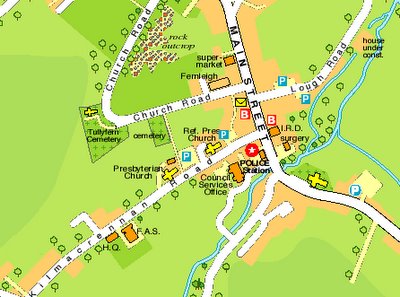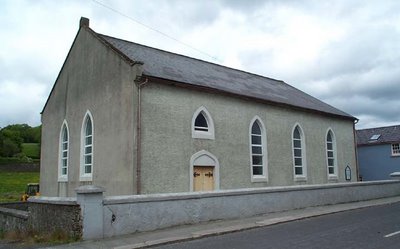(Column for Milford newspaper)
We live in a world where there is a famine of hope. People despair, and struggle with depression. People drop out, walk out, or fall out often because they have lost any sense of hope. They can see no way out. Sometimes in my line of work I meet with people who are struggling with this loss of hope and are wondering, “What’s the point of life? What’s the point of working hard and saving up, and having a pension, if you’re going to die anyway?”
And well-meaning family and friends will say things like, “Cheer up, things aren’t that bad” or “Work hard and settle down, that’ll lift your mind off things”, or “Don’t worry you’ll meet someone else”.
There is a degree of clear-sightedness about those who see the hopelessness of life. Life is uncertain. We will die. Things are bad. How do we know that “you’ll meet someone else”? Is it such a good idea to have our minds lifted off things – if the things are serious and need to be thought through?
On Sunday mornings we’ve been looking at St. Paul’s letter to a group of new Christians at Ephesus. In it he describes what they were like before they came to know Jesus. He says “Remember that at that time you were without hope” (Ephesians 2:11).
In an uncertain world hope can only be found in that which does not change, and which can change us. In other words hope can only ultimately be found in Jesus. He doesn’t change, but he changes us. How can I tell someone whose relationship has just fallen apart that they will find someone else? I can’t, but I can tell them about someone who will love them, and who will be there for them, and who will never leave them. That’s Jesus. How can I tell someone that things will get better? I don’t know their future. But I can tell them about Jesus, who guarantees a home, and a welcome, and a future to all who come to him. Jesus is the one who will give strength to cope.
The hope that Jesus gives isn’t vague or insubstantial, it is utterly certain. It has been purchased by him with his life. Paul goes on to describe elements of this hope – we are heirs, we are family members, we are citizens of God’s kingdom. All of these are about belonging, and having a secure future. That’s what Jesus offers – acceptance, belonging and a hope that no one can take away. Peter picks up this theme too:
“Praise be to the God and Father of our Lord Jesus Christ! In his great mercy he has given us new birth into a living hope through the resurrection of Jesus Christ from the dead, and into an inheritance that can never perish, spoil or fade – kept in Heaven for you, who through faith are shielded by God's power.” (1 Peter 1:3-5)
If you would like to find out more about this hope, please contact me or come along to one of our services.
Mark Loughridge is the minister of Milford Reformed Presbyterian Church and Letterkenny New Life Fellowship. You can read more by him at http://three17.blogspot.com.




